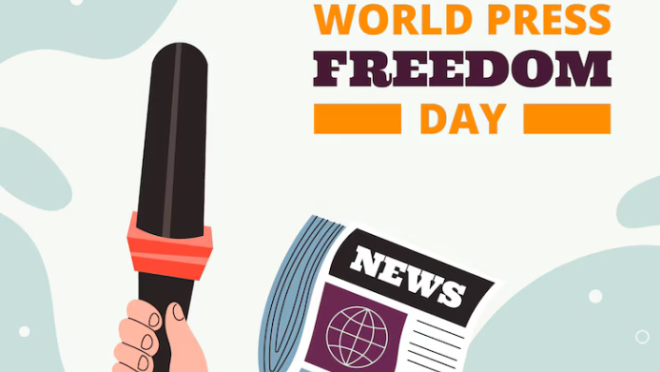World Press Freedom Day: The state of media in the twenty first century
World Press Freedom Day: The state of media in the twenty first century

A free media is touted as one of the main branches among an independent judiciary and legislature to ensure a democratic society. Since the invention of the printing press, the role of media in shaping narratives has been magnified, and it only expanded in this age of the internet. On this 3 May, World Press Freedom Day also centres around another revolution in the realm of media. This year’s theme delves into how Artificial Intelligence (AI) is transforming journalism and media landscapes. AI offers tools that can enhance investigative reporting, content creation, and fact-checking.
The press have always needed to put on the veil of neutrality in the early days to ensure the public’s support. However, due to the nature of confrontational politics and the rise of opinionated journalism, there is no value in just stating the facts and reporting the news as it is. The American media long ago abandoned that tradition and had come up with talk shows, newsroom analysis, and many more avenues to express their own opinions. While this was done to attract viewers primarily, it soon shaped the landscape and turned into the liberal media machine most view to have biases. The current president, Donald Trump, famously exploited this mistrust among the Americans in dubbing the traditional media apparatus as “fake news”.
The subsequent rise of the internet acted as a catalyst in changing the credibility of the traditional media. Within twenty years, almost anyone with a YouTube channel could dub himself as a part of the informed newscaster groups, and play the same tactics the traditional media uses to shape narratives and opinions in the zeitgeist.
The rift between the traditional media and the independent ones was on full display during the Covid 19 pandemic. The traditional media toed the party line, as it did since its inception, pushed vaccines, and the independent ones continuously spitted out the contrarian views as if they had already possessed the answers to a nuanced issue such as Covid. In the end, it seems the mainstream media with all their facts, evidence, and expertise fell out of favour, and the rise of independent media was evident in the last US election cycle where Kamala Harris failed, and a big reason for it was shown to be that she did not appear at the unconventional independent podcasts of individuals such as Joe Rogan, Lex Friedman or comedian-turned-political analysts like Dave Smith and Jimmy Dore.
Bangladesh too has its fair share of mistrust of the mainstream. The usual conversations around certain media houses being biased towards certain political parties have always been constant. We, however, still want to portray ourselves as an unbiased and non-opinionated news source. The international media seem to have moved beyond this, and now they blatantly accept the tags given to them by the people. For instance, networks such as MSNBC, ABC, and CNN are accepted to have liberal point of views whereas networks such as FOX are shamelessly conservative, even entering some questionable views regarding certain issues.
The widespread use of the internet has fragmented the nature of facts and truths. Many studies have shown that some information believed to be true to one segment of the population is not true to the other segment in the political spectrum.
The introduction of AI to this mix has intensified the concern of polarisation. In an episode of the Lex Friedman podcast, OpenAI CEO Sam Altman accepted the fact that AIs too are bound to have certain biases, and in the cases of ChatGPT, Gemini, and other Silicon Valley products, “they can be expected to share the views of the people programming them, who are California tech liberals,” expressed Sam. Elon Musk specifically cited this issue when launching Grok; he wanted an AI that did not share any political biases and in turn made it to be more bold in its responses. In doing so, some even accused Elon of creating a “right wing” alternative to ChatGPT.
By and large, the issue of distrust in traditional media or segments in independent journalism is not too uncommon. Mainstream media have long towed the establishment line, whether they were forced to do so or, in some cases, happily did so for their own benefit. In the end, it is their right to shape the narrative as they see fit, no matter if they reside in the mainstream or on the fringes. The precise motto of celebrating World Press Freedom Day is the word freedom. The media is free to showcase what they seem to believe as righteous, but we are to be cautioned that we, the people, are free to choose what we see fit, and we must not be coerced to believe any side by outside influences.


